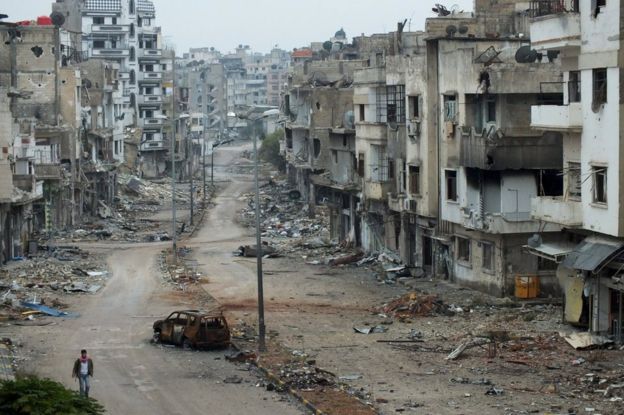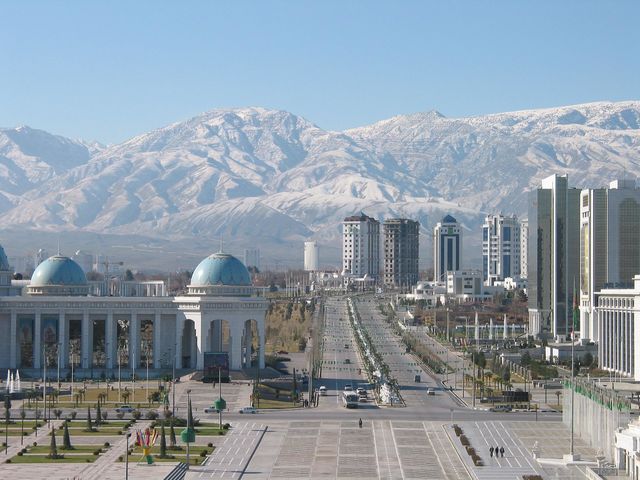Viking11
Banned
- Joined
- May 2, 2016
- Messages
- 174
- Reaction score
- 60
- Location
- New Hampshire
- Gender
- Male
- Political Leaning
- Other
In my opinion, these are the least free countries on Earth. I've ordered them from what I think are least to most free.
1. North Korea

Under the rule of Kim Jong-Un, North Korea remains one of the world’s most repressive countries. All basic freedoms have been severely restricted under the Kim family’s political dynasty. A 2014 UN Commission of Inquiry found that abuses in North Korea were without parallel in the contemporary world. They include extermination, murder, enslavement, torture, imprisonment, rape, forced abortions, and other sexual violence. North Korea operates secretive prison camps where perceived opponents of the government are sent to face torture and abuse, starvation rations, and forced labor. Fear of collective punishment is used to silence dissent. There is no independent media, functioning civil society, or religious freedom.
2. Eritrea

This one-party state ruled by the autocratic regime of the president and his small circle of senior advisers and military commanders is widely considered one of the world’s most repressive. Corruption is a major problem. The politicized and understaffed judiciary has never ruled against the government. Protection of property rights is poor. The state often expropriates private property without notice, explanation, or compensation. Freedom of speech, press, movement, assembly, and association are severely restricted. Less than 1% of the population has access to the internet. Those that practice "unregistered" religions, criticize the government, try to flee the nation, or escape military duty are arrested and put into prison. In 2015, a 500-page UNHRC report detailed allegations of extrajudicial executions, torture, indefinitely prolonged national service and forced labor, and indicated that sexual harassment, rape and prolonged sexual servitude by state officials are also widespread.
3. Syria

Three years after pro-democracy protests arose in spring 2011, Syria remains in a state of human rights and humanitarian crisis. The United Nations lists more than 9 million Syrians as refugees and internally displaced peoples, making it the largest current refugee crisis in the world. Tens of thousands of civilians across Syria, including children, have been forced to endure a life of hardship under siege. Most of the sieges are imposed and maintained by forces loyal to the government of President Bashar al-Assad. Others have been mounted by opposition and other non-state armed groups. Civilians continue to be at the receiving end of frequent indiscriminate attacks by Syrian government forces. Government forces also continue to commit other grave violations, including war crimes such as arbitrary detention, torture, enforced disappearance and extrajudicial execution.
4. Turkmenistan

Although the constitution declares Turkmenistan to be a secular democracy, the country is an authoritarian dictatorship. Human rights problems include arbitrary arrest; torture; disregard for civil liberties, including restrictions on freedoms of religion, speech, press, assembly, and movement; and citizens’ inability to change the government through free and fair elections. Other continuing human rights problems included denial of due process and fair trial; arbitrary interference with privacy, home, and correspondence; discrimination and violence against women; trafficking in persons; and restrictions on the free association of workers.
5. Uzbekistan

A decade after government forces massacred hundreds of largely peaceful protesters in the city of Andijan, the Uzbek government continues to deny justice to the victims. In March, authoritarian President Islam Karimov’s 26-year rule was extended by another five years in elections international observers found lacked any meaningful choice and violated Uzbekistan’s constitution. The government denies citizens the freedoms of association, expression, and religion, using the country’s pervasive security services to maintain rigid control over the population. Thousands of people are imprisoned on politically motivated charges, torture is endemic, and authorities regularly harass human rights activists, opposition members, and journalists. People who practice their religion outside strict state controls are persecuted. Authorities force millions of adults to harvest cotton every fall under harsh conditions, netting enormous profits for the government.
1. North Korea

Under the rule of Kim Jong-Un, North Korea remains one of the world’s most repressive countries. All basic freedoms have been severely restricted under the Kim family’s political dynasty. A 2014 UN Commission of Inquiry found that abuses in North Korea were without parallel in the contemporary world. They include extermination, murder, enslavement, torture, imprisonment, rape, forced abortions, and other sexual violence. North Korea operates secretive prison camps where perceived opponents of the government are sent to face torture and abuse, starvation rations, and forced labor. Fear of collective punishment is used to silence dissent. There is no independent media, functioning civil society, or religious freedom.
2. Eritrea

This one-party state ruled by the autocratic regime of the president and his small circle of senior advisers and military commanders is widely considered one of the world’s most repressive. Corruption is a major problem. The politicized and understaffed judiciary has never ruled against the government. Protection of property rights is poor. The state often expropriates private property without notice, explanation, or compensation. Freedom of speech, press, movement, assembly, and association are severely restricted. Less than 1% of the population has access to the internet. Those that practice "unregistered" religions, criticize the government, try to flee the nation, or escape military duty are arrested and put into prison. In 2015, a 500-page UNHRC report detailed allegations of extrajudicial executions, torture, indefinitely prolonged national service and forced labor, and indicated that sexual harassment, rape and prolonged sexual servitude by state officials are also widespread.
3. Syria

Three years after pro-democracy protests arose in spring 2011, Syria remains in a state of human rights and humanitarian crisis. The United Nations lists more than 9 million Syrians as refugees and internally displaced peoples, making it the largest current refugee crisis in the world. Tens of thousands of civilians across Syria, including children, have been forced to endure a life of hardship under siege. Most of the sieges are imposed and maintained by forces loyal to the government of President Bashar al-Assad. Others have been mounted by opposition and other non-state armed groups. Civilians continue to be at the receiving end of frequent indiscriminate attacks by Syrian government forces. Government forces also continue to commit other grave violations, including war crimes such as arbitrary detention, torture, enforced disappearance and extrajudicial execution.
4. Turkmenistan

Although the constitution declares Turkmenistan to be a secular democracy, the country is an authoritarian dictatorship. Human rights problems include arbitrary arrest; torture; disregard for civil liberties, including restrictions on freedoms of religion, speech, press, assembly, and movement; and citizens’ inability to change the government through free and fair elections. Other continuing human rights problems included denial of due process and fair trial; arbitrary interference with privacy, home, and correspondence; discrimination and violence against women; trafficking in persons; and restrictions on the free association of workers.
5. Uzbekistan

A decade after government forces massacred hundreds of largely peaceful protesters in the city of Andijan, the Uzbek government continues to deny justice to the victims. In March, authoritarian President Islam Karimov’s 26-year rule was extended by another five years in elections international observers found lacked any meaningful choice and violated Uzbekistan’s constitution. The government denies citizens the freedoms of association, expression, and religion, using the country’s pervasive security services to maintain rigid control over the population. Thousands of people are imprisoned on politically motivated charges, torture is endemic, and authorities regularly harass human rights activists, opposition members, and journalists. People who practice their religion outside strict state controls are persecuted. Authorities force millions of adults to harvest cotton every fall under harsh conditions, netting enormous profits for the government.
Last edited:
